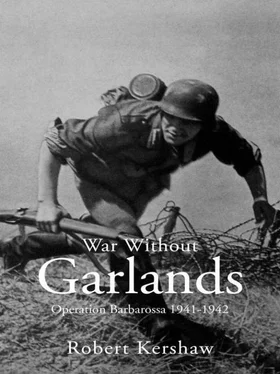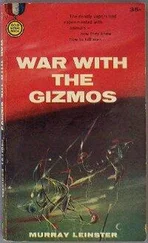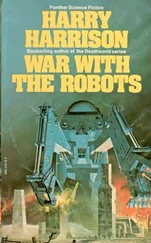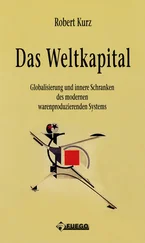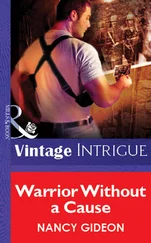Robert Kershaw - War Without Garlands
Здесь есть возможность читать онлайн «Robert Kershaw - War Without Garlands» весь текст электронной книги совершенно бесплатно (целиком полную версию без сокращений). В некоторых случаях можно слушать аудио, скачать через торрент в формате fb2 и присутствует краткое содержание. Город: Hersham, Год выпуска: 2010, ISBN: 2010, Издательство: Ian Allan Publishing, Жанр: military_history, на английском языке. Описание произведения, (предисловие) а так же отзывы посетителей доступны на портале библиотеки ЛибКат.
- Название:War Without Garlands
- Автор:
- Издательство:Ian Allan Publishing
- Жанр:
- Год:2010
- Город:Hersham
- ISBN:978-07110-3590-1
- Рейтинг книги:5 / 5. Голосов: 1
-
Избранное:Добавить в избранное
- Отзывы:
-
Ваша оценка:
- 100
- 1
- 2
- 3
- 4
- 5
War Without Garlands: краткое содержание, описание и аннотация
Предлагаем к чтению аннотацию, описание, краткое содержание или предисловие (зависит от того, что написал сам автор книги «War Without Garlands»). Если вы не нашли необходимую информацию о книге — напишите в комментариях, мы постараемся отыскать её.
War Without Garlands — читать онлайн бесплатно полную книгу (весь текст) целиком
Ниже представлен текст книги, разбитый по страницам. Система сохранения места последней прочитанной страницы, позволяет с удобством читать онлайн бесплатно книгу «War Without Garlands», без необходимости каждый раз заново искать на чём Вы остановились. Поставьте закладку, и сможете в любой момент перейти на страницу, на которой закончили чтение.
Интервал:
Закладка:
National Socialism exploited all the modern means at its disposal to institute social change – in particular the media of radio and film. Both were cheap. The Nazi regime ensured radio receivers were mass-produced and offered at little cost, while the cinema was popular and readily available. A breathless pace of change was achieved from 1933 onwards. Modern ideologies tended, in any case, to blur the process of choice and action. This was particularly the case for the young, many of whom were to be conscripted into military service. ‘There was no time to catch one’s breath, no time to reflect, no refuge from the endless pressure to participate.’ (6)
Some three million German soldiers and their allies were poised to attack the Soviet Union on 22 June 1941. How aware were they that there was some choice regarding the values they were ordered to compromise? Some 17–19 million Germans were eventually to serve on the Russian front from an overall total of 19–20 million under arms. Although all were old enough to kill as combat soldiers, they were completely naïve in terms of political awareness. Many actually reached adulthood during their service, but their only experience of politics was within a totalitarian state. They have since often been morally judged by historians who had only ever been exposed to the principles and values of the modern democratic constitutional state. Both conceptions are poles apart in terms of a common shared experience. Max Kuhnert, a German cavalry trooper, recalled the stultifying transition from civilian to military life. Even with six months’ Arbeitsdienst behind him, where ‘we had comradeship and learned discipline’ with a healthy life, the shock when it came was considerable:
‘For the first six months it was almost unbearable; we felt that we had lost our identity as slowly but surely we were moulded into soldiers. Politics never entered into it – in fact, no one in the army was allowed to vote.’ (7)
Political choice is irrelevant when the vast majority of the population has no conception of what can or should be put in place of a totalitarian state. History also suggests (8)that brutal dictatorships inspire certain patterns of behaviour among people that in normal circumstances would be considered unusual, unappealing or even repulsive. Siegfried Knappe, serving as a young officer in 1938, recalled the impact of the Kristallnacht (pogrom conducted against the Jews in Berlin) among his fellows. ‘We did not talk about it in the barracks,’ he said, ‘because we were ashamed that our government would permit such a thing to happen.’ Reluctance to discuss such sensitive issues was not unusual. Knappe admitted: ‘strong anti-Semitism had always been just beneath the surface in the German population, but no one I knew supported this kind of excess.’ (9)A revealing statement, indicative of the then prevalent flaw within the German character, true for officers and soldiers alike. Anti-Semitic excess was not even identifiable as such to many. Helmut Schmidt, a young Luftwaffe Flak officer serving with the 1st Panzer Division poised to invade Russia, has succinctly summed up the dilemma. His age group, he reasoned after the war, had no standard to measure themselves by, declaring:
‘My generation and those that followed, the young people [ who were conscripted ] had absolutely no yardstick to measure themselves by. We were therefore offered up [ to Hitler ] with no hope.’ (10)
Personal standards and individual moral resilience were, therefore, in conflict with accepted peer pressure. There was not a general collective or even total acceptance of Nazi standards; many simply chose to pursue the line of least resistance. Such a course may not even have involved conscious reflection. All one had to do was ‘join in’, which the Nazi Weltanschauung philosophy enjoined all to do. Knappe claimed Hitler’s ‘hatred of the Jews made no sense to any of us, and we just wanted to distance ourselves from the ugly side of his character’. (11)It was easier, indeed safer, to do nothing. This tied in with the soldiers’ universal earthy philosophy of ‘not volunteering’, neither should anyone ‘stick his neck out’. Inge Aicher-Scholl exemplified the consequences of an alternative course. Her brother and sister were to be executed two years later as members of the ‘White Rose’ Resistance Group to Hitler. On being arrested and questioned by the Gestapo, she was under no illusion where alternative philosophical paths might lead:
‘I was only 19 at the time, and it was such a shock that from then on I was always afraid. I was afraid of anything that might lead to my being taken to prison again, and that was exactly what they wanted.’
She signed a paper agreeing that should she discuss her interrogation with anyone, it would provide grounds for a rearrest. It produced a persistent nagging fear. ‘From that day on,’ she said, ‘I was afraid of prison, and this fear made me very timid and passive, just completely inactive.’ (12)
Hauptmann Klaus von Bismarck, a battalion adjutant in Infantry Regiment 4, remembers he was shocked on receiving the Commissar Order. Communist Party officials, namely political commissars, captured serving with the Red Army, were to be shot.
‘I rebelled against it and said, “No. I will not follow such an order.” Numerous friends decided to support my view and that was what I reported to my CO. He simply received the report with a grim expression. He seemed a very decent sort to us.’
Infantry Regiment 4, waiting in its assembly area as part of the invasion force, was, as Bismarck described, ‘a conservative regiment, still for the most part distinguishable as part of the 100,000- man army of the Weimar period’. (13)Hauptmann Alexander Stahlberg of the 12th Panzer Division heard about the Commissar Order from his cousin, Henning von Tresckow, a staff officer in HQ Army Group Centre. ‘That would be murder!’ was his assessment. His cousin concurred:
‘The order is just that and for that reason we are not allowed to give it to the troops in writing, but you will receive it by word of mouth before the attack begins and will still have to pass it on by word of mouth to the companies.’
Appalled, Stahlberg asked from whom the order came. ‘From the man to whom you gave your oath [Adolf Hitler]. As I did,’ responded his cousin ‘with a penetrating look’. Oberstleutnant Heinrich Becker, his commanding officer, formally briefed the Commissar Order to his officers and was met by a ‘deathly silence’. Before dismissing them, Becker warned:
‘There is reason to remind you of The Hague Convention on Land Warfare. I am now speaking of the treatment of prisoners and wounded. Anyone who abuses prisoners and wounded I shall have court-martialled. Do you understand me, gentlemen?’ (14)
They did. Von Bismarck in Infantry Regiment 4 had determined not to shoot commissars because as a soldier and Christian he could not see why Wehrmacht people should despatch others simply because they possessed an alternative view of the world. They were all officers and took their own individual rather than collective decision on how they intended to conduct themselves during the coming campaign.
There were others with an equally robust alternative view. Unteroffizier Wilhelm Prüller with Army Group South confided to his diary on 22 June, following the announcement of the impending invasion:
‘The fight between communism, which is rotting so many peoples, and National Socialism was bound to come. And if we can win now, it’s better than doing it later.’
Anti-Semitism was never far beneath the outwardly decent demeanour of the majority. He noticed the Jews in Tschenstochov and other large towns ‘are herded together’, and that every man and woman is obliged to wear a white arm-band with a blue star of Zion on it. ‘That’s the way it should be in the whole world!’ he confided. There was scant sympathy shown by the majority of German soldiers for the plight of the Polish population in the occupation zone. ‘The people in general,’ Prüller observed, ‘are in a very depressed state.’ They walked with heads down. Huge queues formed everywhere for food. ‘The Poles won’t have a very rosy time of it!’ (15)he commented. Nor indeed would the Russians.
Читать дальшеИнтервал:
Закладка:
Похожие книги на «War Without Garlands»
Представляем Вашему вниманию похожие книги на «War Without Garlands» списком для выбора. Мы отобрали схожую по названию и смыслу литературу в надежде предоставить читателям больше вариантов отыскать новые, интересные, ещё непрочитанные произведения.
Обсуждение, отзывы о книге «War Without Garlands» и просто собственные мнения читателей. Оставьте ваши комментарии, напишите, что Вы думаете о произведении, его смысле или главных героях. Укажите что конкретно понравилось, а что нет, и почему Вы так считаете.
